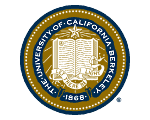Mate Lengyel
Gatsby Computational Neuroscience Unit, University College London
Firing rates and phases in the hippocampus: what are they good for?
Tuesday 14th of March 2006 at 05:00pm
5101 Tolman
In the hippocampus not only the instantaneous rate but also the precise timing of spikes, often characterized as firing phases relative to the ongoing theta oscillation, is known to convey meaningful information and participate in neural information processing. Although both firing rates and phases are often tied to the spatial position of the animal, under some conditions they are decoupled, and apparently code for different variables. It is still unclear, however, what the use is of such an intricate dual rate-and-phase coding scheme, and even more, how such dynamics support the key role accorded to the hippocampus in memory processing.
We have thus developed a normative theory of hippocampal neural dynamics prescribing the way the instantaneous rates and phases of neural firings should interact in order to achive near-optimal memory retrieval. We suggest that the content of memory traces is specified by the firing phases of the neurons (and stored by spike timing-dependent plasticity), whereas the degree of certainty in the current memory being retrieved is conveyed by their firing rates. The neural dynamics that implemented these computations led to competent memory retrieval performance in simulated networks and also suggested predictions about the interactions between neural firing rates and phases. We have started testing these predictions in vitro and in vivo and found a good qualitative match between theory and experiments. These results suggest that neural interactions in the hippocampus may be optimal for retrieving memory traces encoded by firing phases augmented with an important uncertainty signal conveyed by firing rates.
Work in collaboration with Peter Dayan (Gatsby Computational Neuroscience Unit, University College London), Jeehyun Kwag and Ole Paulsen (Department of Physiology, Anatomy and Genetics, Oxford University), and Francesco Battaglia (Swammerdam Institute for Life Sciences, University of Amsterdam).
(video)
Join Email List
You can subscribe to our weekly seminar email list by sending an email to
majordomo@lists.berkeley.edu that contains the words
subscribe redwood in the body of the message.
(Note: The subject line can be arbitrary and will be ignored)

